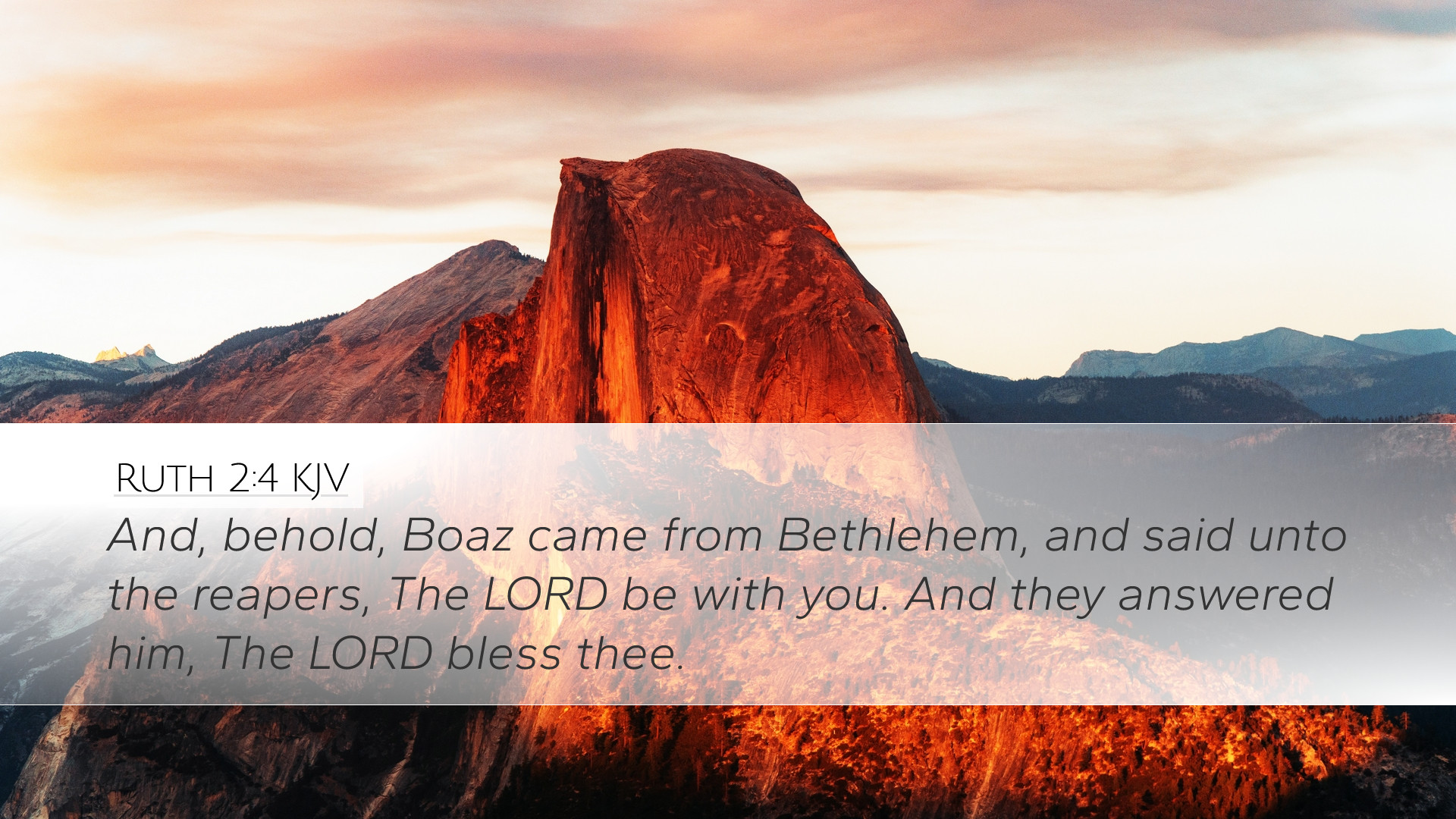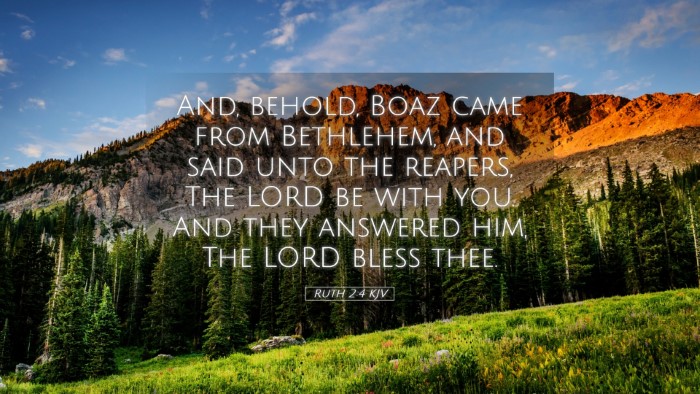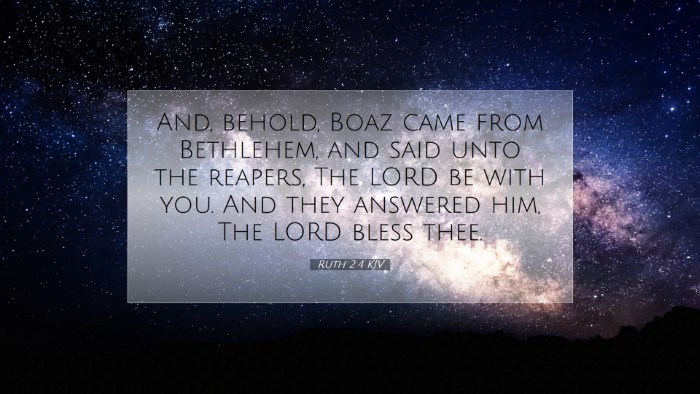Old Testament
Genesis Exodus Leviticus Numbers Deuteronomy Joshua Judges Ruth 1 Samuel 2 Samuel 1 Kings 2 Kings 1 Chronicles 2 Chronicles Ezra Nehemiah Esther Job Psalms Proverbs Ecclesiastes Song of Solomon Isaiah Jeremiah Lamentations Ezekiel Daniel Hosea Joel Amos Obadiah Jonah Micah Nahum Habakkuk Zephaniah Haggai Zechariah MalachiRuth 2:4
Ruth 2:4 KJV
And, behold, Boaz came from Bethlehem, and said unto the reapers, The LORD be with you. And they answered him, The LORD bless thee.
Ruth 2:4 Bible Commentary
Commentary on Ruth 2:4
Introduction: Ruth 2:4 is a pivotal verse within the Book of Ruth, providing key insights about the characters and the unfolding of God's providential plan. The verse reads:
"And behold, Boaz came from Bethlehem, and said unto the reapers, The Lord be with you. And they answered him, The Lord bless thee." (Ruth 2:4, KJV)
Contextual Analysis
Historical Background: The Book of Ruth is set during the time of the judges, a period marked by social instability and moral decline in Israel. This context highlights the faithfulness and loyalty exhibited by Ruth and Naomi.
The Meaning of Bethlehem: Bethlehem, known as the "House of Bread," plays a crucial role in the narrative. Its mention in this verse not only ties Boaz back to the town that symbolizes sustenance and hope but also foreshadows the coming of Christ, who would be born in Bethlehem.
Character Study: Boaz
Boaz's Character: Boaz is introduced in this verse as a man of standing and stature. His greeting to the reapers, "The Lord be with you," demonstrates his piety and leadership style—marked by respect and sincerity. This phrase reflects the culture of the time, where blessings were an integral part of daily interactions.
Public Domain Commentary Insights:
- Matthew Henry: Henry emphasizes Boaz's character as an epitome of Christ-like behavior, portraying a man of wealth who treats his workers with kindness and consideration. He signifies the grace of God in his interactions.
- Albert Barnes: Barnes draws attention to the implications of Boaz's greeting, noting that it conveys a sense of community and spiritual concern. His words serve as a blessing that fosters goodwill among his workers, enhancing the environment of the harvest.
- Adam Clarke: Clarke points out the significance of the reapers’ response, "The Lord bless thee." This mutual exchange of blessings represents a healthy societal interaction that promotes peace and goodwill among its members.
Theological Implications
Divine Providence: At the heart of this verse lies the theme of divine providence. Boaz’s appearance is not merely coincidental but is part of God's overarching plan for Ruth and Naomi. His arrival signifies hope for Ruth, who is gleaning in the fields, seeking sustenance and a better future.
The Nature of Blessings: The blessings exchanged between Boaz and the reapers serve as a reminder of the importance of speaking well of one another. This reflects a theology of mutual encouragement and support within the community of believers, foundational principles in both Old and New Testaments.
Application for Today
Leadership and Conduct: For pastors and Christian leaders, Boaz presents an example of how to lead with integrity and a blessing-oriented approach. By fostering a spirit of encouragement and respect, leaders can create an atmosphere of grace among their congregations.
Community Engagement: This verse challenges modern Christians to consider how they interact within their communities. The model of Boaz illustrates the power of words and the impact of a caring attitude in building strong community relationships.
Conclusion
The insights from Ruth 2:4 offer profound lessons about leadership, community, and the faithfulness of God’s providence. Boaz’s character not only serves as an archetype for believers but also illustrates the beauty of mutual respect and blessing among individuals.
As pastors, students, theologians, and scholars reflect on this passage, may they find inspiration and guidance in the way Boaz interacted with others, exemplifying Christ-like love and the call to be a blessing in their respective communities.


